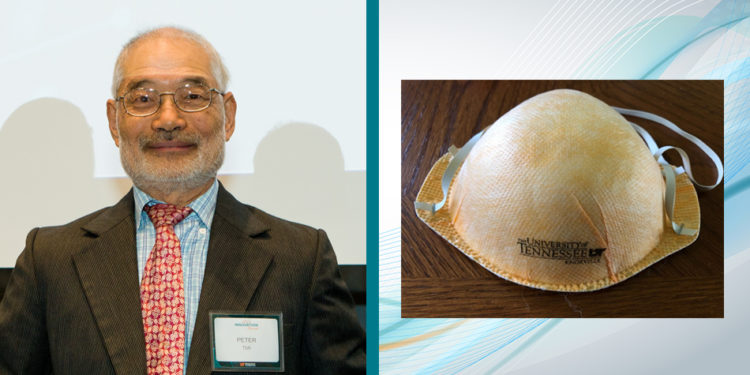
Brief bio: Peter Tsai, Ph.D.
Employment: Research faculty, Joint Institute of Advanced Materials, The University of Tennessee, Knoxville
Expertise: Development of meltblowing (MB) systems and the electrostatic charging (EC) of materials for making air filter electrets. The MB and the EC developed by Tsai have been used in the industries worldwide making tens of billions of pieces of N95 respirators or face masks. He has received three prestigious awards from UT in recognition of his contribution to technology innovation. Tsai is a Fellow Member of American Filtration and Separation Society and a member of Electrostatic Society of America.
Patents:
Due to the extremely fast evolving data, UTRF has removed its FAQ in favor of the consortium site.
For more information on N95 face piece decontamination, please see: https://www.n95decon.org/